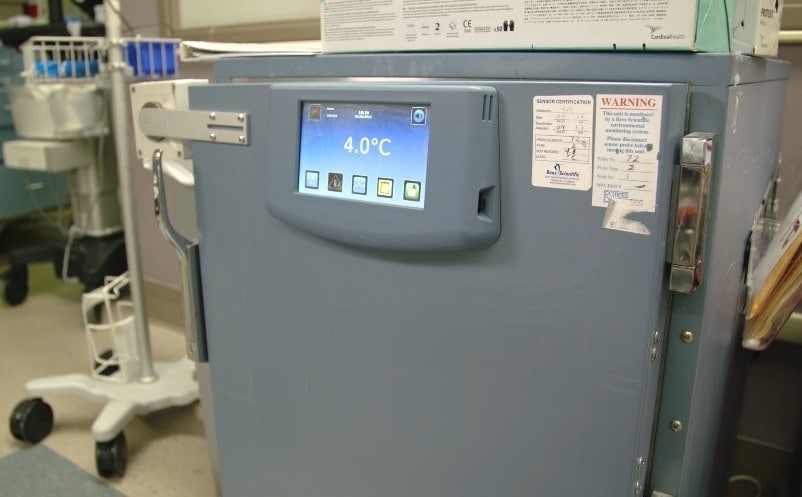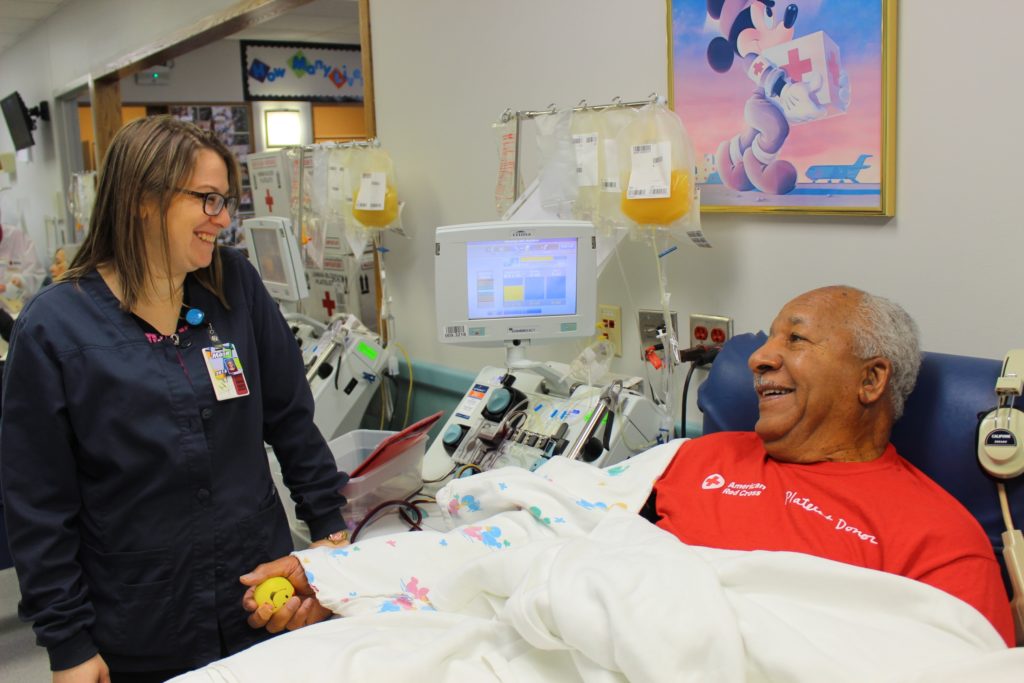 This picture of a refrigerator located in an emergency room may not appear particularly interesting, but its contents help save hospital patient lives every day. Emergency room refrigerators in hospitals across the country are filled with lifesaving blood products thanks to generous blood donors.
This picture of a refrigerator located in an emergency room may not appear particularly interesting, but its contents help save hospital patient lives every day. Emergency room refrigerators in hospitals across the country are filled with lifesaving blood products thanks to generous blood donors.
While scheduled surgeries allow time to provide blood type specific products that match the patient, emergencies involving trauma patients often do not allow enough time to determine an individual’s blood type. That’s why hospitals often stock blood products in emergency room refrigerators that can be given to any patient.
Let’s learn a little more about these specific blood products:
Type O negative blood is the universal blood type and can be transfused to patients of any blood type. It is what emergency room personnel reach for when there is no time to determine the blood type of patients in the most serious situations. Less than 7 percent of the U.S. population has type O negative blood. Because there is such a high demand for type O negative blood, these donors are needed to donate regularly.
Type AB plasma is the universal plasma type and can be transfused to patients of any blood type in an emergency. Plasma helps maintain blood pressure and supplies critical proteins for clotting and immunity. It is often needed for burn, trauma and clotting factor deficiency patients. Plasma is a part of whole blood and can also be collected simultaneously with a platelet donation or through a plasma-only donation at select Red Cross blood donation centers.
While not stored in the above refrigerator, platelets are also often needed for a trauma case requiring a massive transfusion.

Platelets are tiny cells in blood that form clots and stop bleeding. Platelets must be transfused within just five days after donation – so there is a constant, often critical need for new and current donors to give to keep up with hospital demand for platelets. Although they are needed for many reasons, cancer patients often rely on platelets during treatment. By giving platelets regularly, donors can help patients kick cancer and recover from other life-threatening illnesses and injuries.
Eligible donors across the country can help ensure emergency room refrigerators stay sufficiently stocked by rolling up a sleeve to give. Schedule an appointment to donate blood or platelets by using the Blood Donor App, visiting redcrossblood.org or calling 1-800-RED CROSS (1-800-733-2767).
And don’t forget to fill out your RapidPass before arrival that day to help speed up the donation process!
Individuals who are 17 years of age in most states (16 with parental consent where allowed by state law), weigh at least 110 pounds and are in generally good health may be eligible to donate blood. High school students and other donors 18 years of age and younger also have to meet certain height and weight requirements.
